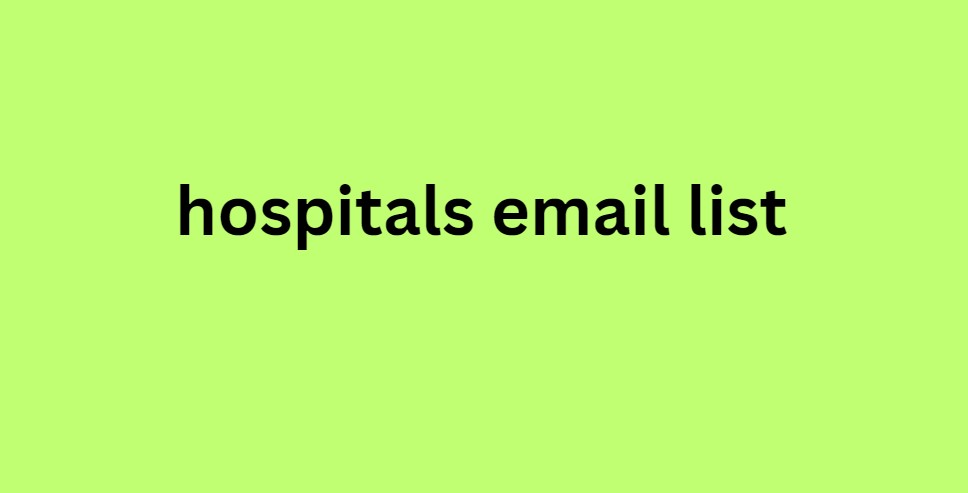Productivity tips that work for both creatives and techies
Posted: Sat Dec 21, 2024 4:32 am
As someone who works with companies to increase their productivity, I know there is already a lot written on the Internet about the best way to boost productivity. But for many people, what might help you to be productive might not work at all for some of your colleagues. Not only because we all work better in different ways, but mainly because we do totally different things.
We know that productivity for those of us in creative pursuits – writers, marketers, and graphic designers – depends entirely on how creative we feel that day and how successful we are at turning the ideas in our hospitals email list heads into tangible results. However, for developers and the like, tasks are based on problem-solving and logic.
So of course it's natural that we have a different idea of what makes us 'productive'.
Fortunately, there are some golden tips that any of us can implement and benefit from, regardless of the job we do.

1. Eliminate all distractions. Immediately
Creatives and tech-savvy people all, without a doubt, work online. (Unless you’re a particularly hipster writer who prefers good old pen and paper…). Because we spend so much of our personal lives online, too, it can be difficult to disentangle your personal online space from your work.
Even though we all need regular breaks to make sure we’re actually being efficient (more on that below), sometimes you can find yourself accidentally wasting time. Worse yet: it’s been estimated that it takes us 23 minutes to refocus after a distraction. That’s a big price to pay for just a few extra minutes scrolling through your News Feed…
So, you need to make sure you don't get distracted without realizing it.
The first step is to literally hide your distractions. Unless you really need your phone for work (let’s be honest, you probably don’t), put it away. You won’t have notifications lighting up your screen every 10 minutes and taking your focus away from what you’re actually working on. “Out of sight, out of mind” actually works better than you might imagine!
And if you want to take this seriously, use an app like Self Control. The app lets you select certain websites (your biggest weaknesses, for example) and blocks them for a certain amount of time. If this seems too extreme, start by logging out of all your social media accounts every morning. You’d be surprised how annoying it is to log into Instagram every time (and no amount of #instafood will make it worth it…).
2. Be realistic about your time management
Of course, time management and proper planning are essential for productivity. We've all heard it so many times that it's pretty standard.
And there are some time management techniques that are centuries old (literally), like the Pomodoro technique. It's simple enough to understand: you work (without distractions) for 25 minutes, and then take a 5-minute break before repeating.
We know that productivity for those of us in creative pursuits – writers, marketers, and graphic designers – depends entirely on how creative we feel that day and how successful we are at turning the ideas in our hospitals email list heads into tangible results. However, for developers and the like, tasks are based on problem-solving and logic.
So of course it's natural that we have a different idea of what makes us 'productive'.
Fortunately, there are some golden tips that any of us can implement and benefit from, regardless of the job we do.

1. Eliminate all distractions. Immediately
Creatives and tech-savvy people all, without a doubt, work online. (Unless you’re a particularly hipster writer who prefers good old pen and paper…). Because we spend so much of our personal lives online, too, it can be difficult to disentangle your personal online space from your work.
Even though we all need regular breaks to make sure we’re actually being efficient (more on that below), sometimes you can find yourself accidentally wasting time. Worse yet: it’s been estimated that it takes us 23 minutes to refocus after a distraction. That’s a big price to pay for just a few extra minutes scrolling through your News Feed…
So, you need to make sure you don't get distracted without realizing it.
The first step is to literally hide your distractions. Unless you really need your phone for work (let’s be honest, you probably don’t), put it away. You won’t have notifications lighting up your screen every 10 minutes and taking your focus away from what you’re actually working on. “Out of sight, out of mind” actually works better than you might imagine!
And if you want to take this seriously, use an app like Self Control. The app lets you select certain websites (your biggest weaknesses, for example) and blocks them for a certain amount of time. If this seems too extreme, start by logging out of all your social media accounts every morning. You’d be surprised how annoying it is to log into Instagram every time (and no amount of #instafood will make it worth it…).
2. Be realistic about your time management
Of course, time management and proper planning are essential for productivity. We've all heard it so many times that it's pretty standard.
And there are some time management techniques that are centuries old (literally), like the Pomodoro technique. It's simple enough to understand: you work (without distractions) for 25 minutes, and then take a 5-minute break before repeating.